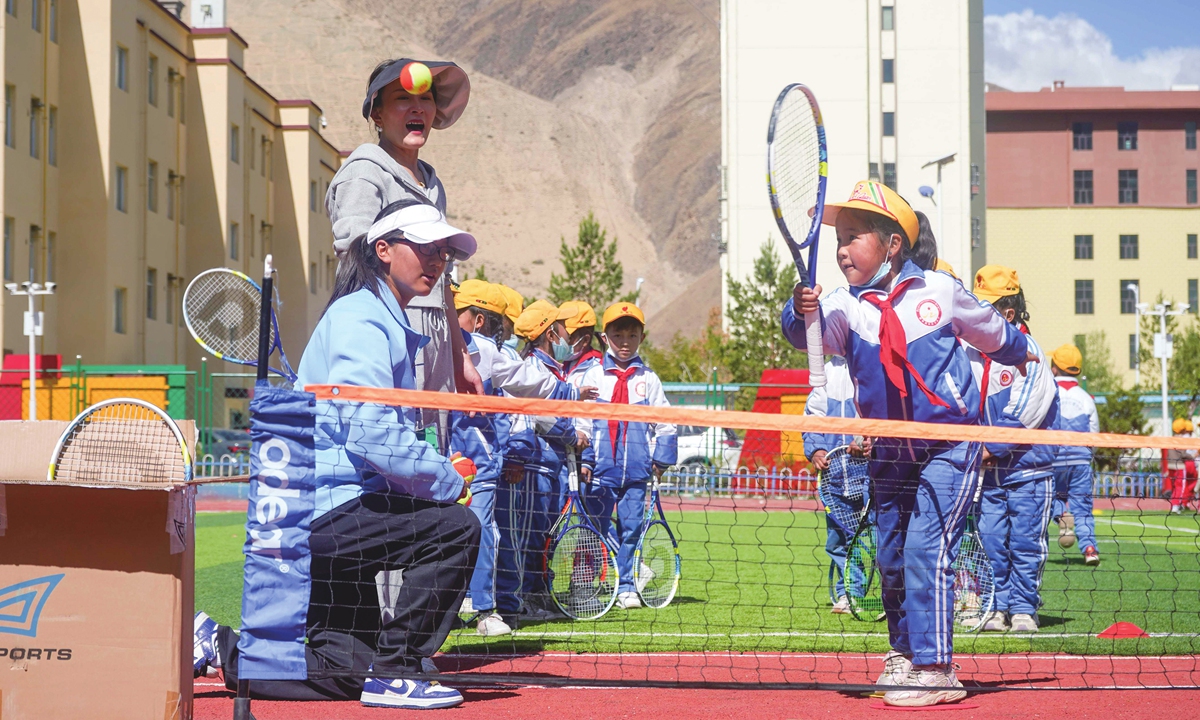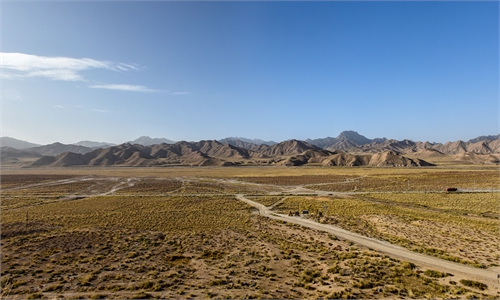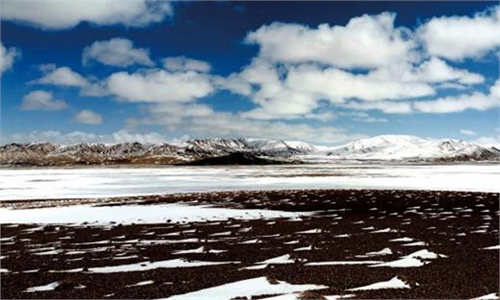Smear of boarding schools in Xizang region a ‘replica of stunt on Xinjiang to demonize China’

Students play tennis at a primary school in Lhasa, Southwest China's Xizang Autonomous Region on May 13, 2022. Photo: VCG
Anti-China groups that seek to separate Southwest China's Xizang (Tibet) Autonomous Region from China exaggerated "recommendations" from a UN-backed panel to smear boarding schools in the region as an "assimilation policy," which analysts said is a replica stunt of the lies about China's Xinjiang region, aiming to demonize China.
Reports on the so-called assimilation policy in boarding schools in Xizang region are baseless and have been propagated with a malicious purpose to smear China, Chinese Foreign Ministry spokesperson Mao Ning said on Thursday, stressing that boarding schools in the region have been set up for local residents' needs, and they were not under closed-off or military-style management.
Mao's remarks were made after some media exaggerated the "observations" made by the UN Committee on Economic, Social and Cultural Rights, in which it expressed "concerns" over reports on an "assimilation policy" in a "coerced boarding school system" in China's Xizang region.
Soon after the committee released the "recommendations," some media, with many found to be related to the separatist group "Tibetan government-in-exile," exaggerated the committee's "recommendations" and claimed that it "strongly condemned" China for the "assimilation policy."
However, Global Times reporters found no word like "condemn" appearing in the committee's "recommendations."
These media also noted that the "evidence" was presented to the Committee by the Tibet Advocacy Coalition. The Global Times found that the Tibet Advocacy Coalition is a project established in 2013 by the International Tibet Network, which is a coalition that seeks to split the Xizang region from China.
Moreover, International Tibet Network receives funds from the US National Endowment for Democracy (NED). For example, according to information from the NED website, the coalition got $320,000 in 2021.
Anti-China groups have intensified the hypes of Xizang-related topics as the 52nd session of the Human Rights Council is ongoing to make momentum for the US to push new bills on the Xizang region and to incite overseas separatists to seek independence of the region.
These bills will also serve for US moves in meddling with the geopolitical situation in South Asia, Zhu Ying, a professor at the Baize Institute at the Southwest University of Political Science and Law, told the Global Times.
However, the latest hype centering on China's Xizang region seems to have a similar formula with the lies and disinformation on China's Xinjiang region - similar topics on boarding schools, and accusation of "suppression" of ethnic minorities' cultures, analysts said.
"It looks like the anti-China groups in the US and some Western allies have an industrial line to produce anti-China products, and whether they put Xizang or Xinjiang or any other region into the line, they will make similar products. All this disinformation is too low, and don't they ever think to update the line?" said Zhu.
What China has done in its Xizang region is to cultivate talent, preserve traditional culture, protect religious freedom and boost local residents' lives. There is nothing like the assimilation of minority groups, said Zhu, noting that the US and some Western countries, which had the taint of cultural genocide especially in boarding schools, should not deem that other countries would follow their unforgettable crimes.
Foreign Ministry spokesperson Mao also noted that some media should report on the boarding schools in the region with respect to the truth, instead of spreading disinformation.
People in some high-altitude places in the Xizang region have scattered settlements and it is very inconvenient for children, especially those from herdsman families, to go to school and it is also hard to ensure the quantity of teachers and education.
To ensure all children can enjoy equal rights to education, the region set up boarding schools in accordance with local needs, and whether students go to these schools depends on them and their parents, Mao said.
Like boarding schools in other places across China, such schools in the Xizang region pay great attention to parents' engagement in their children's education and invite them to take part in the management of the boarding schools via open days or other channels.
Students can choose to go home on weekends and holidays, including the Tibetan New Year, known as Losar. Parents can also come to see or pick up their children at any time they want, said Mao.
These schools also have classes on Tibetan language, traditional dance and other traditional culture. They also offer traditional local food. Students can also wear traditional clothes in schools, said Mao.




